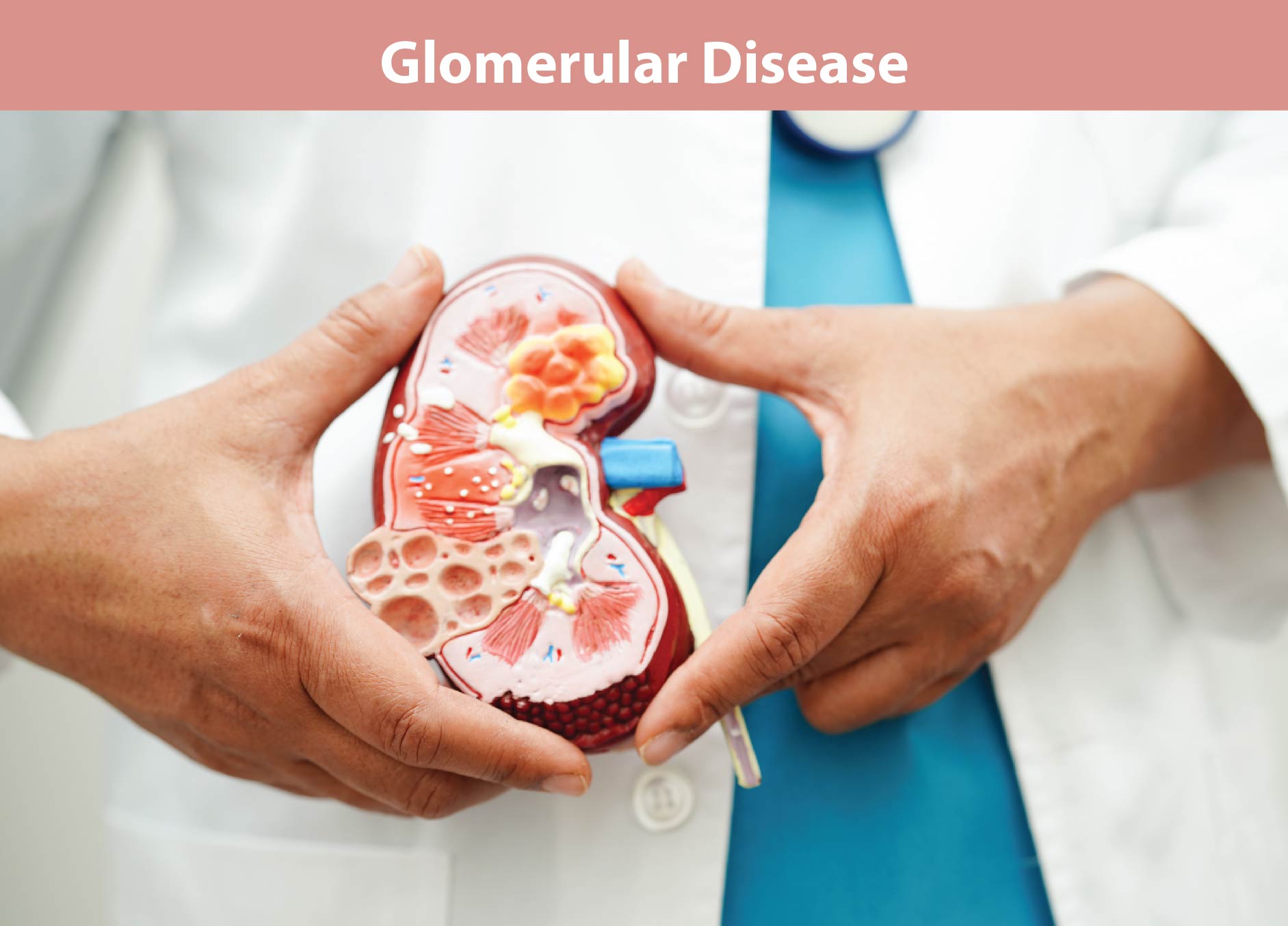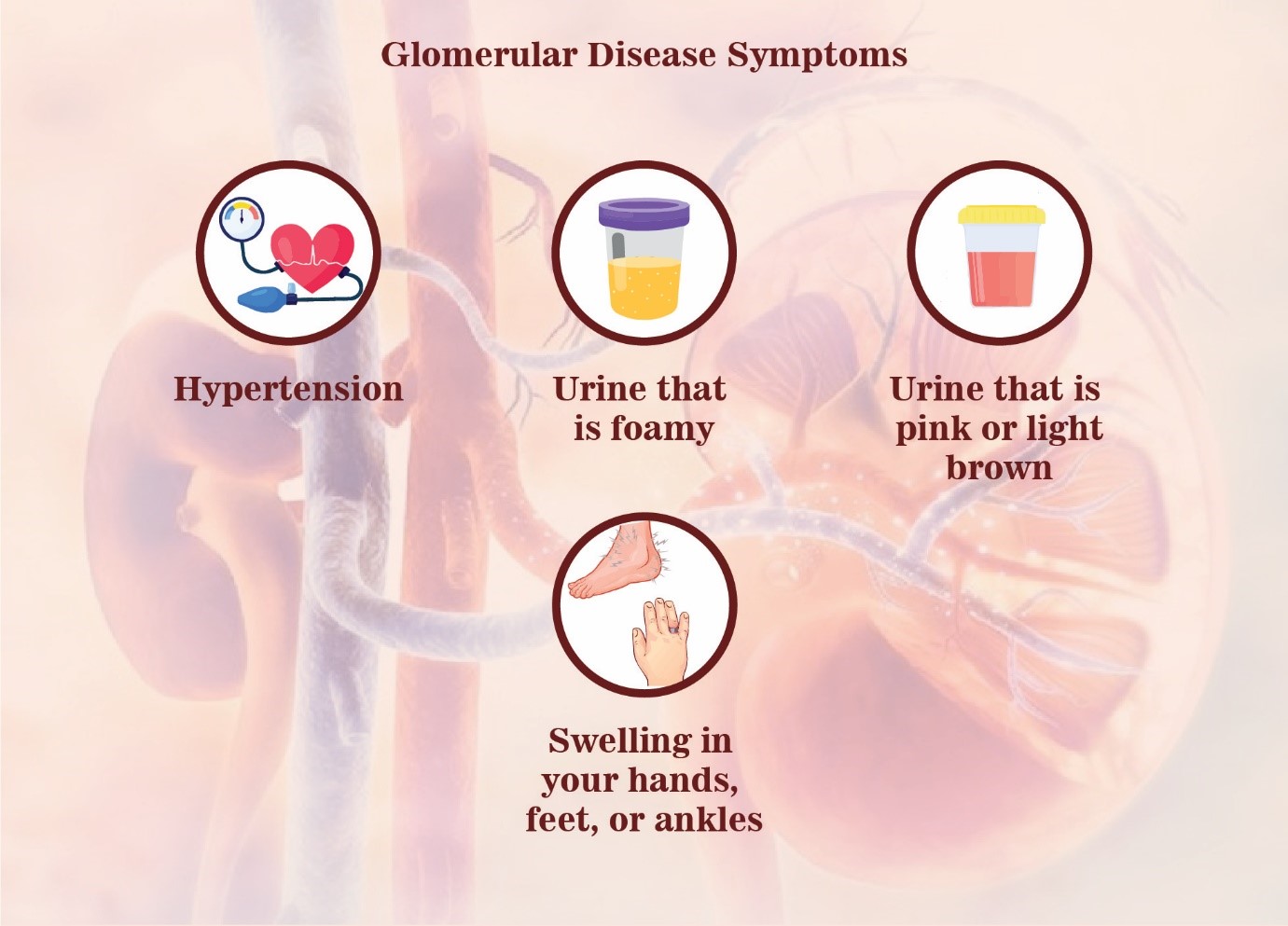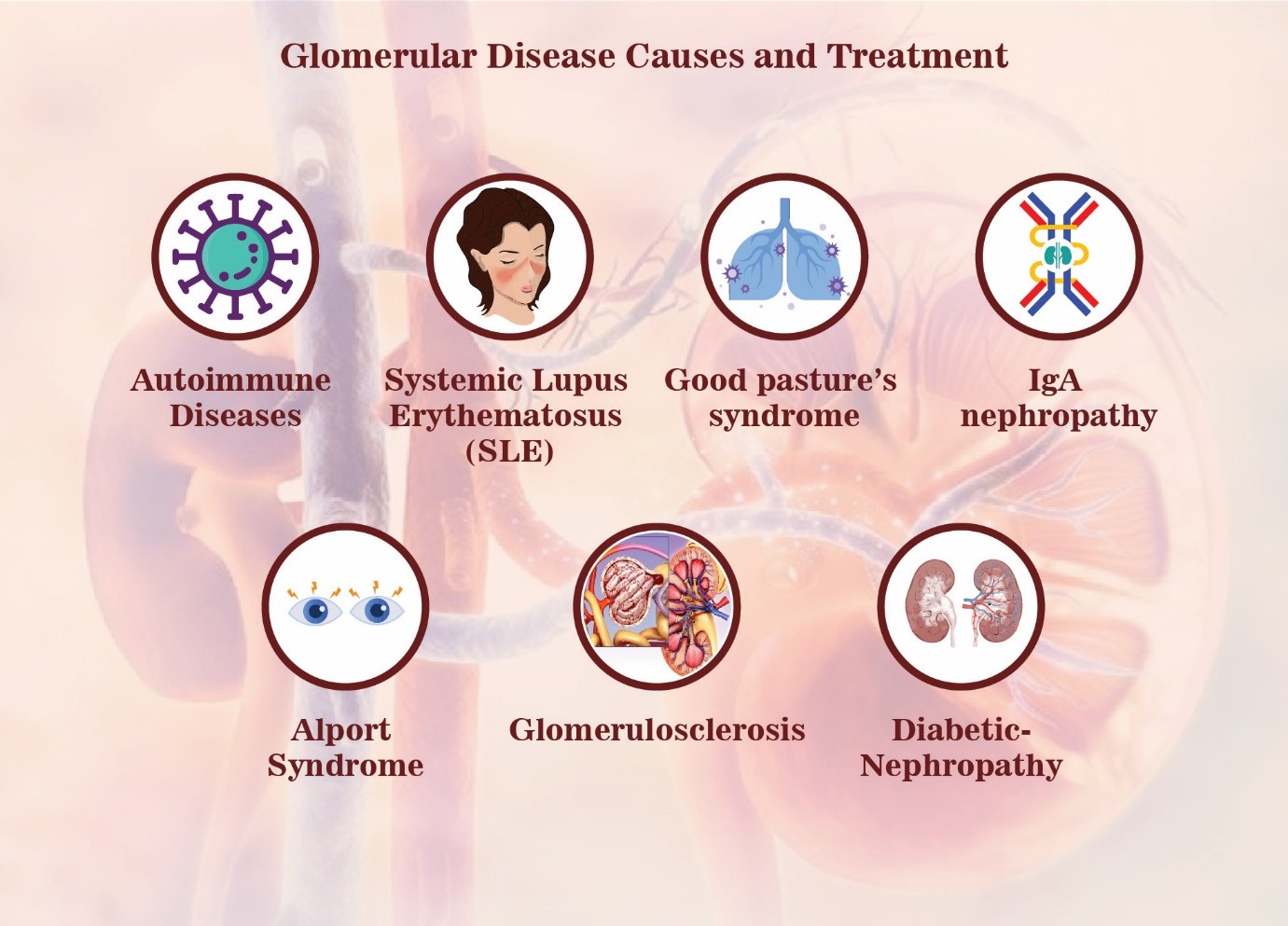Frequently Asked Questions
(FAQs)
What is glomerular disease?
Glomerular disease refers to conditions that affect the glomeruli, which are tiny filters in the kidneys. These filters help remove waste and excess fluids from the blood. When they are damaged, the kidneys can’t function properly, leading to waste buildup in the body.
What are the common symptoms of glomerular disease?
- Symptoms may vary but common include swelling (especially in the face, hands, and feet), high
blood pressure, fatigue, and changes in urine (such as blood, foam or dark colour). Sometimes,
glomerular disease may not cause noticeable symptoms in the early stages.
Can glomerular disease lead to kidney failure?
- Yes, if untreated, glomerular disease can progressively damage the kidneys, leading to chronic
kidney disease or kidney failure. In advanced stages, dialysis or a kidney transplant may be
needed.
How is glomerular disease diagnosed?
- A doctor may use urine and blood tests to detect abnormal levels of protein or waste products.
In some cases, a kidney biopsy (a small sample of kidney tissue) is needed to accurately diagnose
the specific type of glomerular disease.
Can glomerular disease be cured?
- Treatment depends on the cause and type of glomerular disease. Some conditions can be
managed with medications, diet, and lifestyle changes, while others may not be curable but can
be controlled to prevent kidney damage from worsening.
Is glomerular disease hereditary?
- Some types of glomerular disease are hereditary and run in families, while others develop due
to external factors like infections or immune responses. If there's a family history of kidney
problems, it's essential to inform your healthcare provider.
Can children develop glomerular disease?
- Yes, children can develop glomerular disease, often due to genetic conditions, infections, or
immune disorders. Pediatric nephrologists specialize in diagnosing and treating kidney diseases
in children.
How does glomerular disease affect daily life?
- Depending on the severity, glomerular disease may affect daily activities. Some patients may
need to adjust their diet, manage medications, and monitor blood pressure regularly. It’s
important to keep a close eye on symptoms and follow the doctor’s advice to maintain quality of
life.
Is dialysis always needed for glomerular disease?
- Dialysis is not always necessary. It is only required if glomerular disease leads to severe kidney
failure, where the kidneys can no longer filter waste effectively. Early diagnosis and proper
treatment can help delay or prevent the need for dialysis.
Are there any natural treatments for glomerular disease?
- While natural treatments like dietary changes, reducing salt intake, and staying hydrated can
support kidney health, they cannot replace medical treatment. Always consult your doctor
before trying any alternative therapies.


